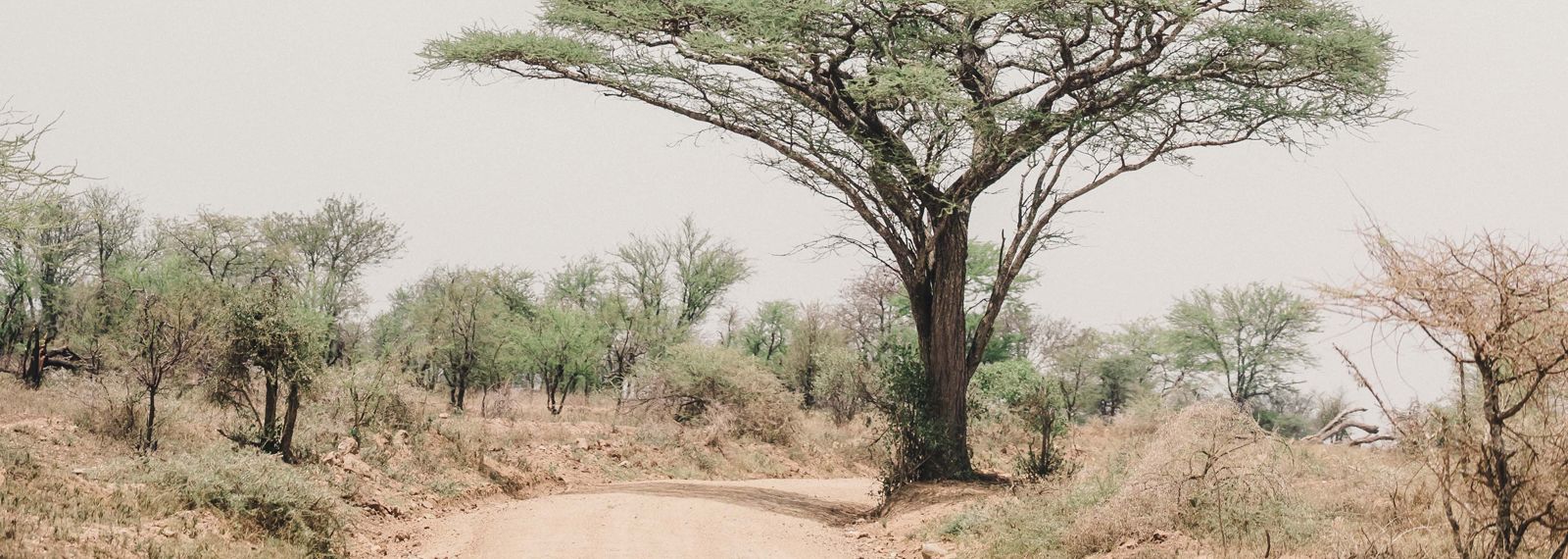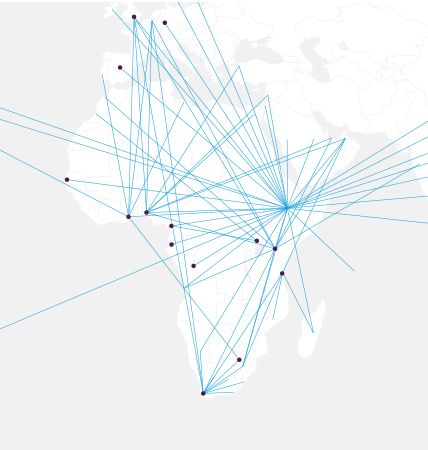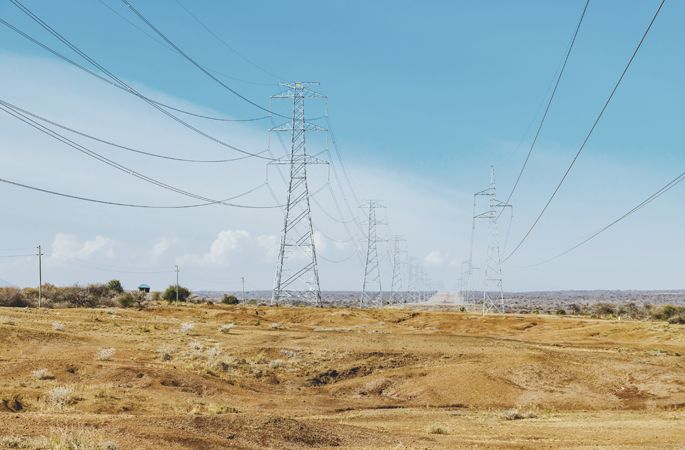
Innovation and New Ventures in Africa — The Road Ahead
In this interview with the Coller Venture Review, David Grammig, Founder and Managing Director of Grammig Advisory, talks about the future of Africa, and how new venture is growing on the continent.
Coller Venture Review —
Hi David, thanks for taking the time to share your venture and inspiring vision. Let’s start at the beginning. I understand that you help connect private investors in Africa. Can you explain?
David Grammig —
We create a network of family offices, part of a network that we intend to span the continent. It is the continent with the fastest growing population, and Africa is not only growing but leapfrogging. The opportunities are huge.
CVR —
Can you explain a bit when you say “opportunities” – how is this linked to funding and support for new ventures?
Grammig —
Great question. We are principally focused on three areas:
The first is Food Tech – broadly speaking, this means feeding the continent. We also see many opportunities in the Mobility sector. To us, this is not just about supporting mobility across a city (for example) but, more fundamentally, about connecting networks of people, across villages, to one another. Finally, we are focused on Energy. Again, we look downstream to impact. For us it’s not just cool ideas, but the transformative potential of those ideas. In the energy sector, for example, this includes energy solutions so kids can study at night and even participate in home schooling.
What we are not is a gateway for foreigners to recolonize, which is an important point to make. Having said that, there is plenty of room for foreigners to participate. For example, we have a Swiss company active in Ghana, they work with Ghanaian cocoa farmers. They have a triple impact – environment, social, and health. They help farmers who earn less than a dollar a day, and I can say it is a true collaboration.
CVR —
Zooming out for a moment, you work across Europe and the Mediterranean as well. How would you compare innovation across these ecosystems?
Grammig —
I think it’s the sense of innovation and the drive and the resourcefulness of the people – ideas that are really ingenious, that solves problems that are there. People on the ground are often the best problem solvers, and the people on the ground in Africa are really still very close to the problems they are trying to solve – and with relatively less resources. In my view, the relatively short distance between any given problem and the need for a solution is a real differentiator. As I said earlier, if we can’t solve the energy problem, it’s not that electricity might cost a bit more…it’s that children can’t get educated.
CVR —
Africa is a big continent, and it hard for those of us who haven’t lived or worked there to really get a sense of the huge potential you’ve alluded to, beyond the specific areas of focus you’ve mentioned. Can you help further frame it?
Grammig —
Sure. Africa has 54 countries with 54 governments and endless numbers of political systems. Several are financially sophisticated and internationally connected – there is tremendous wealth in countries as far afield from one another as Rwanda, Egypt, Morocco, Nigeria, Kenya, South Africa, Tanzania, and even Zimbabwe. These countries and others have tremendous natural resources, and very highly educated people – but also sanctions and a political elite that has been grabbing onto power for way too long. So, in that sense, I would say it is both huge potential – and also of course huge challenges.
CVR —
Are you alluded to infrastructure challenges here?
Grammig —
Absolutely. There are huge struggles with infrastructure and connectivity. A family that attended my conference had to travel 24 hours…air travel is a big hindrance to trade and connecting. South African Airlines mostly does domestic flights only. Electricity is constantly being cut off. This is not helping with business. The South African airline is the most sophisticated in the continent, and even they have problems.
There are problems also with loans, and with the banking system. In fact, banks will finance real estate and that’s probably about it. There are many stories of African entrepreneurs who went to the U.S. or Europe or the Middle East to get the capital they need to build their businesses. The sophistication of the banking system in Africa generally is very low, which is why the African money is going to Dubai, where they receive the range of financial services that they need but don’t receive at home. This is also why Mauritius is pushing to become the hub of private banking in Africa, an alternative to Dubai.

CVR —
The path for change sounds complicated – how do you bring this all together into a unifying framework?
Grammig —
For us, it always starts with the relationship. There are families with four generations of wealth, and it’s critically important to build trust and be able to work across not just across countries, but also within countries, across generation. There is also huge heterogeneity. For example, f you google Kenya’s richest families, 4 out of 5 have Indian backgrounds. They are Africans with Indian roots – and this is also partially in South Africa, Kenya, and Tanzania. So culture as well as ethnicity plays a huge role in each and every relationship.
In addition, now that the continent is growing, there is a lot of new wealth. But clever entrepreneurs are not always such clever investors – this is a different kind of diversity, a sort of intellectual and experiential heterogeneity. So we have to address that too, in building the relationship. In this case, we help members of our network not just to seize opportunities, but then to think what to do with it, how and where to invest. There are endless interaction effects – in this case, the new money is learning from the old money how to preserve wealth.
Finally, we keep in mind context and history. A family that made its wealth in agriculture, for example, and is struggling with climate change… has a very different set of challenges than a family that started out in mining.
As a non-African, you don’t go by yourself. You need the local partner…if you go to Zimbabwe and buy a blueberry farm,
two weeks later it’s no longer yours
CVR —
How do you relate the micro and the macro – the families and the continents?
Grammig —
Well, at the family level, it’s clear that I’m not African. And I’ve had to learn – it’s important to recognize – that they have different family networks – that they are, for example, patriarchal with large families. This makes a difference. And it makes a difference if you have a Christian or a Muslim family, it makes a difference if everything is being split between the children or passed on to the first born. You have to find and understand their own way of doing it.
Beyond that, one has to understand if a family wants to invest outside of the country, or maybe even outside the continent. Some have the notion that one has only really made it if they’re recognized in the U.S. and Europe. It’s a real asymmetry of sorts – while African Americans are realizing they want to invest on the continent, the locals are pushing the money out.
When we work together, we look for opportunities abroad as well as on the continent. And we understand the unique challenges of each. For example, we had a Kenyan family that spoke about their biggest failure, and it was their failed expansion into Tanzania. When they spoke to a Tanzanian family that we brough them together with, the Tanzanian family said “Everything you did was wrong. But also what was wrong was also the conclusion you drew from it.” And in this way, they learned from each other. They actually entered a joint venture, and are now working together. They need to learn from each other still.
This working through the families and then through the families across the continent is no small task. I spoke to a gentleman from Nigeria who asked, “Do you understand the continent”? And I said “No, but neither do you. You as a Nigerian don’t understand the Kenyans and the Mauritians. This is exactly why I’m doing what I’m doing. So you can learn from one another, and work on things together.”
CVR —
Beyond everything you have already shared with us, how would you help us understand the broader culture – i.e., what should those thinking about working in Africa remember to keep in mind?
Grammig —
Great question. Here I would say Africa is still really protective. I think it’s best summarized as “Whatever I share with you, you will use against me to my disadvantage.” Remember – If you’ve made it in an African country, you’ve made it despite the circumstances – despite a lack of education, workers, corruption. You made it because you were clever and smart and navigated the system. So the thinking is – the more I tell you about the system, the more I give away and then you become a competitor. But this needs to change, so everyone can work together and expand, and this is something we are trying to help change.

Africa is still really protective. I think it’s best summarized as ‘Whatever I share with you, you will use against me to my disadvantage.’ But this needs to change, so everyone can work together and expand
CVR —
In summary, and as you look ahead , can you summarize for us the success that you aspire that efforts like yours will bring about twenty years from now?
Grammig —
Absolutely. First, for all of us, it’s about sharing and growing cultural know-how – confidence vision, and horizons.
Beyond that, I aspire that there will be greater connectivity between families to talk to each other, and work together and align their activities, whether in business or philanthropy – to have trust and collaboration with one another. With the African free trade agreement, the first step has been made, but Africa is still very fractured. Even greater connectivity between economies will facilitate free trade, and greater connectivity between private actors will make them a little less private, and open for real collaboration with their peers. I think of this practically as “We have a background in healthcare, so let us take care of hospitals and you take care of education, even if we work in your country and you put your network in ours.”
It’s amazing how much is being done on the continent, but still they are all doing it on their own. They have so much work ahead of themselves, if everyone cooks their own broth, it’s won’ be quick enough to get Africa where it needs to be. What is important – and what we fundamentally aspire to – is a geographic approach where tons of individual entrepreneurs work hand-in-hand with one another, and with governments. It will ultimately be a collaboration of global and local player players who will take know-how, technology, and funding, and drive change.
I hope there will be greater connectivity between economies to facilitate free trade, and greater connectivity between private actors, to make them a little less private, and open for real collaboration with their peers. I think of this practically as ‘We have a background in healthcare, so let us take care of hospitals and you take care of education, even if we work in your country and you put your network in ours.’ If everyone cooks their own broth, it won’t be quick enough to get Africa where it needs to be
